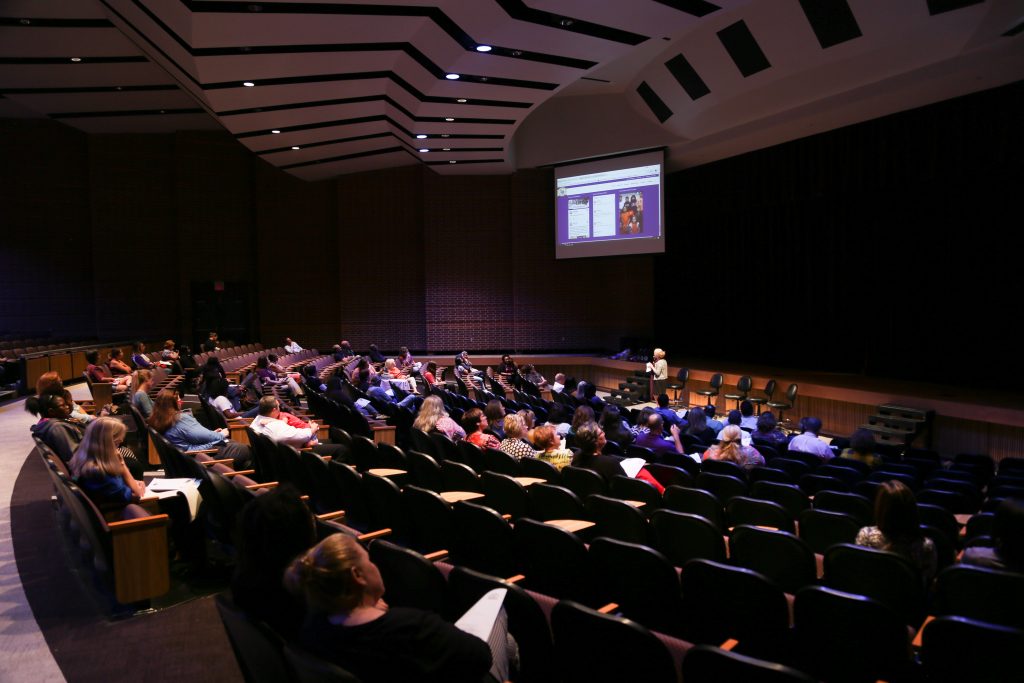Q&A from the Panther Community Forum
 Q: Attendance – what is considered excused and unexcused?
Q: Attendance – what is considered excused and unexcused?
A: Written notes from parents for illness will be accepted as “excused” for five absences. Any further absences for illness will only be excused with a doctor’s note. After three unexcused absences, a truancy letter will be sent to parents. Absences other than for illness could be excused or unexcused as determined by the principal. Examples of excused absences are: funeral, family emergency (explained) or other possible extenuating circumstance. Following ten unexcused absences, parents are sent a court letter summoning them to appear before the judge. Please remember that a court summons means that a maximum number of days have been missed by the student.
Click here for the Student/Parent handbook.
Q: Where do you find staff email on the district webpage?
A: Staff Lists under the “Resources” and “Contact Us” sections of all campus sites. If you are unable to email a staff member, make sure your pop-up setting is turned on.
Q: Bullying?
A: Bullying is prohibited by the district. It occurs when a student or group of students engages in written or verbal expression, expression through electronic methods, or physical conduct against another student on school property, at a school-sponsored or – related activity, or in a district operated vehicle and the behavior:
- Results in harm to the student or the student’s property,
- Places a student in reasonable fear of physical harm or of damage to the student’s property, or
- Is so severe, persistent, and pervasive that it creates an intimidating, threatening, or abusive educational environment.
This conduct is considered bullying if it exploits an imbalance of power between the student perpetrator(s) and the student victim and if it interferes with a student’s education or substantially disrupts the operation of the school. Bullying is prohibited by the district and could include hazing, threats, taunting, teasing, assault, demands for money, confinement, destruction of property, theft of valued possessions, name-calling, rumor-spreading, or ostracism. In some cases, bullying can occur through electronic methods, called “cyber bullying.” If a student believes that he or she has experienced bullying or has witnessed bullying of another student, the student or parent should notify a teacher, school counselor, principal, or another district employee as soon as possible to obtain assistance and intervention. The administration will investigate any allegations of bullying or other related misconduct and take appropriate disciplinary action if bullying has occurred. Disciplinary or other action may be taken even if the conduct did not rise to the level of bullying. The district will also contact the parents of the victim and of the student who was found to have engaged in the bullying. Available counseling options will be provided to these individuals, as well as to any students who have been identified as witnesses to the bullying. Any retaliation against a student who reports an incident of bullying is prohibited.
Click here to access the bullying report form on the Lufkin ISD website.
Q: Please provide resources and warning signs of children with dyslexia.
A: The current definition of dyslexia from the International Dyslexia Association states:
Dyslexia is a specific learning disability that is neurological in origin. It is characterized by difficulties with accurate and/or fluent word recognition and by poor spelling and decoding abilities. These difficulties typically result from a deficit in the phonological component of language that is often unexpected in relation to other cognitive abilities and the provision of effective classroom instruction. Secondary consequences may include problems in reading comprehension and reduced reading experience that can impede growth of vocabulary and background knowledge (Adopted by the International Dyslexia Association Board of Directors, November 12, 2002)
Common Signs of Dyslexia
(as noted in the Dyslexia Handbook, revised 2007)
The following signs may be associated with dyslexia if they are unexpected for the individual’s age, educational level, or cognitive abilities:
Pre-school
- May talk later than most children
- May have difficulty with rhyming
- May have difficulty pronouncing words (i.e., busgetti for spaghetti, mawn lower for lawn mower)
- May have poor auditory memory for nursery rhymes and chants
- May be slow to add new vocabulary words
- May be unable to recall the right word
- May have trouble learning numbers, days of the week, colors, shapes, and how to spell and write his or her name
Kindergarten through third grade
- Fails to understand that words come apart, for example, that snowmancan be pulled apart into snow and man and later on, that the word man can be broken down still further and sounded out as /m/ /ă/ /n/
- Has difficulty learning the letter names and their corresponding sounds
- Has difficulty decoding single words (reading single words in isolation) — lacks a strategy
- Has difficulty spelling phonetically
- Reads dysfluently (choppy and labored)
- Relies on context to recognize a word
Fourth grade through high school
- Has a history of reading and spelling difficulties
- Avoids reading aloud
- Reads most materials slowly, oral reading is labored, not fluent
- Avoids reading for pleasure
- May have an adequate vocabulary
- Has difficulty spelling, may resort to using less complicated words in writing that are easier to spell
Q: What If I Suspect My Child Has Dyslexia?
A: Discuss your concerns with your child’s teacher to better understand your child’s progress and history of instructional interventions. If appropriate, referrals may be processed through the campus Student Intervention Team (SIT) to suggest further intervention strategies and/or referral for dyslexia screening. If deemed appropriate, dyslexia screenings require parental permission and are completed by district dyslexia therapists.
Dyslexia Program
The Dyslexia Program of Lufkin ISD is committed to the early identification of students with the characteristics of dyslexia and related learning disorders. Early identification is followed by appropriate intervention and support for these students by providing access to appropriate instructional services on each campus. Dyslexia services are provided at all Lufkin ISD campuses.
District Contacts
- Alys Ray, Dyslexia Coordinator, (936) 633-6231
- Betty Harrison, Director, (936) 630-4294
Dyslexia Links
Q: Are seat belts required on school buses?
A: On June 15, 2017, Governor Abbott signed Senate Bill 693, relating to three-point seat belts on buses that transport school children, into law. If a school district purchases, leases or contracts school buses or school activity buses model year 2018 or newer, those buses must be equipped with three-point seat belts for each passenger. The law does not require retrofitting. At this time, Lufkin ISD only has buses manufactured before that date and is not required to have passenger seat belts on our bus fleet.
Click here for more information on the bill.
